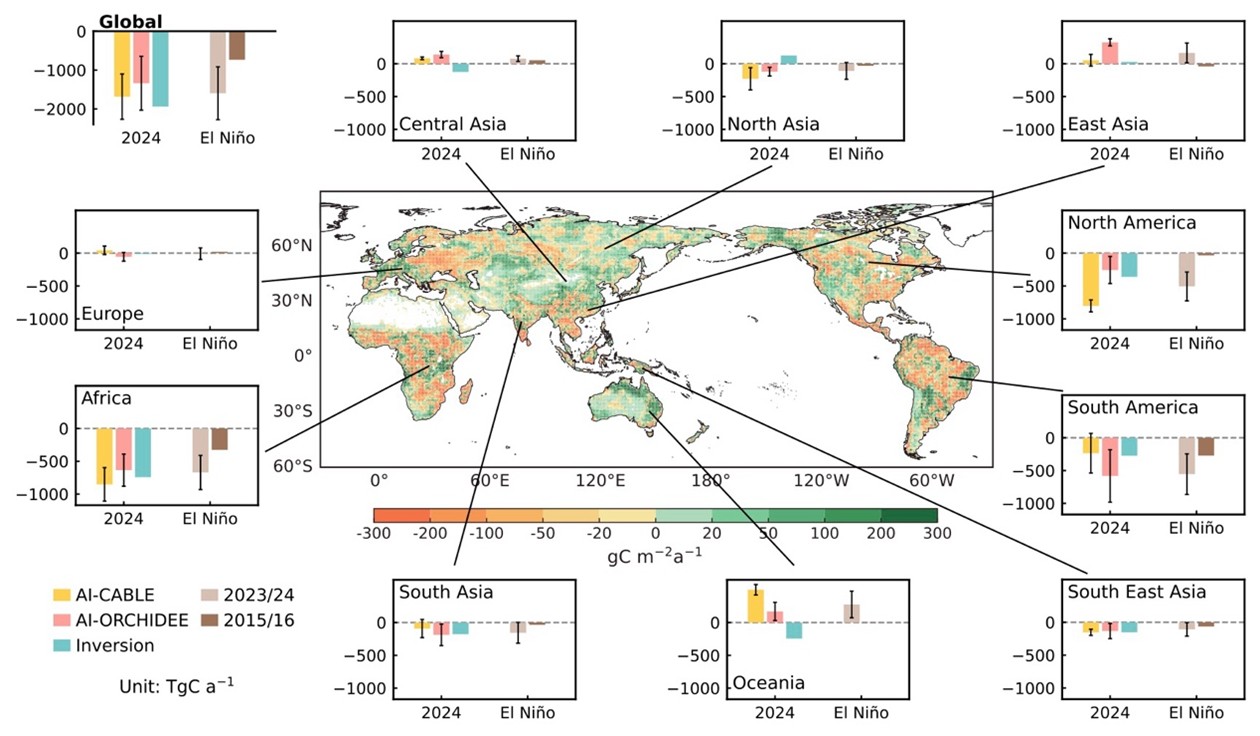Peking University, November 4, 2025: A Peking University research team led by Wang Heyuan and Wang Kai at the Institute for Carbon Neutrality (ICN) found by using AI models that global land carbon sink had drastically shrunk due to abrupt and extreme jump of global temperature. Their study, “AI‑tracked halving of global land carbon sink in 2024,” was published in
Science Bulletin.
Why It Matters:
Terrestrial ecosystems play an important role in the global carbon cycle, absorbing nearly one-third of annual human-induced carbon emissions. Timely, defensible tracking of the changes happening to such ecosystems has become more important against a backdrop of increasingly common climate extremes.
The processed-based AI models used by the team can effectively shore up the typical one-year lag dogging traditional assessment methods, making possible near-real-time detection and diagnosis of carbon cycle responses. This will enhance our understanding of emerging shifts in Earth’s coupled carbon-climate system and contribute to science-based policy-making.
Key Findings:
Using an in-house, process-based AI model dubbed Carbon Mind, the team estimated the 2024 global land carbon sink and mapped its spatial pattern at high resolution. Carbon Mind learns mechanistic signals in the terrestrial carbon cycle while remaining interpretable and traceable, enabling rapid updates as climate anomalies unfold.
The analysis shows that the land sink in 2024 fell to less than half of the average level during the past decade, with particularly sharp reductions across the tropics. Within tropical ecosystems, grasslands and savannas exhibited proportionally greater losses than tropical rainforests, indicating that semi-arid ecosystems under prolonged drought did not demonstrate stronger resilience to extreme events. Further analysis points to heat- and drought-induced declines in vegetation productivity as principal drivers of tropical carbon sink reduction.
 Fig. Abnormal carbon sinks in global and regional terrestrial ecosystems in 2024 and the two most recent strong El Nino events.
Future Implications
Fig. Abnormal carbon sinks in global and regional terrestrial ecosystems in 2024 and the two most recent strong El Nino events.
Future Implications
These AI-enabled findings underscore that tropical land systems—especially semi-arid grasslands and savannas—may be more vulnerable than previously assumed, with global repercussions for atmospheric CO₂ growth. As such tools are integrated with atmospheric inversions and ground observations, they can support adaptive land-management strategies, stress-testing of climate pathways, and more responsive policy interventions.
*This article is featured in PKU News "Why It Matters" series.
Read more: https://doi.org/10.1016/j.scib.2025.10.015
Written by: Zhuo Yaying
Edited by: Phoon Hui Yin, Andrena, Chen Shizhuo
Source: PKU News (
Chinese)
